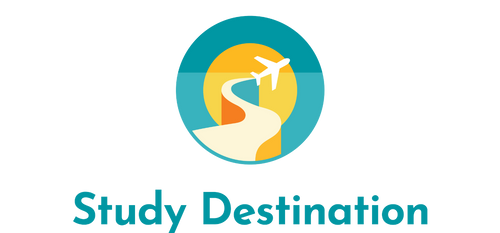Are you thinking about studying in Canada? It’s no wonder why! Canada is known for its top-quality education, multicultural environment, and stunning natural landscapes. Whether you're dreaming of a vibrant city experience in Toronto or a serene campus life in Vancouver, Canada has something for everyone. But before you pack your bags and book that flight, let’s dive into everything you need to know about studying in Canada as an international student.
Why Study in Canada?
Canada's High-Quality Education 📚
Canada boasts some of the best educational institutions in the world. Its universities consistently rank high globally, and its research facilities are cutting-edge. Whether you’re interested in engineering, arts, business, or any other field, Canadian institutions offer a wide range of programs.
Work and Study Opportunities in Canada 💼
Many students choose Canada because they can work while studying. You can gain valuable work experience and earn some extra money by working part-time during your studies and full-time during breaks.
Canada's Welcoming Environment 🤗
Canada is known for its friendly and welcoming nature. With people from all over the world calling Canada home, you’ll find it easy to make friends and feel at ease. Canada is proudly multicultural, with 1 in 5 residents born outside the country. You'll find a welcoming community that celebrates different cultures and backgrounds.
Canada's Stunning Natural Beauty 🌲🏔️
From the breathtaking Rocky Mountains to the iconic Niagara Falls, Canada is a paradise for nature lovers. During your free time, you can explore its national parks, hike, ski, or just soak in the scenic beauty.
🗣️ Bilingual Benefits:
Improve your English and French! Canada's official languages offer you the chance to become proficient in both, enhancing your global employability.
What is Canada's Study Permit?
If you want to study in Canada, you’ll need a Study Permit, which acts as your student visa. This permit allows you to enroll in a program at a designated learning institution (DLI) in Canada. Here’s what you need to know:
- Application Fee: The fee for a Study Permit is C$150.
- Designated Learning Institution (DLI): Your chosen school must be on the DLI list. Otherwise, your permit will not be granted.
- Electronic Travel Authorization (eTA): You may also receive an eTA along with your Study Permit, which you’ll need to enter Canada.
How to Apply for Canada's Study Permit?
The process for getting a Canadian Study Permit can seem daunting, but we’ve broken it down into simple steps:
-
Get an Admission Letter from a DLI 📄
This is your first step. Apply to your chosen Canadian institution, and once accepted, they’ll send you an admission letter. Keep this safe—it’s a key document for your permit application. -
Apply Online or Download the Application Package 🖥️
You can apply for your Study Permit online or by submitting a paper application. Online applications are faster and more convenient. -
Pay the Application Fee 💳
The application fee is C$150. Keep the receipt as proof of payment. -
Medical Check-Up 🩺
Depending on your home country, you might need a medical exam. This must be conducted by a panel physician approved by the Canadian government. -
Receive a Decision 📩
After submitting all your documents and attending any necessary interviews, you’ll receive a decision on your application. If approved, you’re all set to study in Canada!
Student Direct Stream (SDS) 🚀
If you’re from certain countries, you can apply through the Student Direct Stream (SDS) to get your Study Permit faster—typically within 20 days! To be eligible, you must be a legal resident in one of these countries:
- Antigua and Barbuda
- Brazil
- China
- Colombia
- Costa Rica
- India
- Morocco
- Pakistan
- The Philippines
- Senegal
- Saint Vincent and the Grenadines
- Trinidad and Tobago
- Vietnam
Types of Study Programs in Canada
Language Courses in Canada:
📘 Language Mastery: Whether you're a beginner or advanced learner, Canada's language schools offer personalised programs to boost your English or French proficiency.
⏱️ Fast-Track Learning: Short on time? Intensive courses pack in more hours per week, helping you make rapid progress in just a few weeks or months.
Exam Preparation Courses: Include courses for official certifications.
✅ Get Certified: Prepare for internationally recognised exams like IELTS, TOEFL, or TEF to enhance your academic and professional profile.
Vocational and Co-op Programs in Canada:
🔧 Hands-On Experience: Co-op programs blend classroom learning with practical work experience. Study for 6 months, then apply your skills during a 6-month paid internship related to your field.
💼 Work While You Learn: Gain real-world experience, earn income, and build a network in your industry—all while completing your studies.
University Degrees (Bachelor's Programs) in Canada:
🎓 Achieve Your Degree: Enroll in bachelor's programs ranging from 2 to 5 years at prestigious Canadian universities. Graduate with a globally recognized degree and a competitive edge in the job market.
🌟 Future Prospects: Eligible graduates can apply for a Post-Graduation Work Permit (PGWP) and potentially pave the way to permanent residency in Canada.
Bringing Your Family to Canada 👨👩👧
If you’re planning to bring your spouse or children with you to Canada, they can apply for visas as well:
- Spouse: Can apply for an Open Work Permit, allowing them to work in Canada for the same duration as your study program.
- Children: Can enter Canada as visitors, as long as you provide proof of your study permit and program.
Requirements for a Canada Student Visa 📋
To apply for a Canadian Study Permit, you’ll need:
- Admission Letter from a DLI
- Medical Exam and Police Check Results
- Two Passport-Sized Photos
-
Proof of Financial Support
You need to show you have enough money to support yourself during your studies. This can be through personal savings, a scholarship, or a sponsor.
Biometrics: You may also need to submit your biometrics (fingerprints and photo) at an approved Visa Application Center in your country.
How Long Does Canada Student Visa Process Take?
Processing times can vary, but it’s generally up to 90 days. However, if you’re eligible for the SDS, you could get your permit in as little as 20 days!
What If Your Application Is Rejected? 😟
Don’t worry! It’s common for applications to be rejected. Here are some reasons why and how you can fix them:
- Inadequate Financial Funds: Prove you have sufficient funds not just for the first year, but for the entire duration of your studies.
- Unclear Acceptance Letter: Ensure your letter is from a registered DLI and is properly formatted.
- Missing Documents: Double-check that all required documents, like language test scores and travel documents, are included.
- Intent to Return Home: Show proof of strong ties to your home country, like a job offer or family commitments.
If you believe your application was wrongly rejected, you can always appeal or reapply after addressing the issues.
How Much Does It Cost to Study in Canada? 💰
The cost of studying in Canada can vary widely based on your course and institution. On average, you’ll need between CAD 7,000 to CAD 35,000 per year for tuition fees. For Indian students, this translates to around INR 3,50,000 to 19,00,000 annually.
Keep in mind, you’ll also need to budget for living expenses. As of January 2024, you need to show at least CAN$20,635 for a year’s living expenses.
Common Questions About Studying in Canada ❓
What are the basic requirements to study in Canada?
-
Valid travel document, like a passport.
-
Good health, with no criminal record.
-
Ties to your home country that show you’ll return after your studies.
Who can apply for a Canadian Study Permit?
- Must be enrolled at a DLI.
- Show proof of funds for tuition and living expenses.
- Clean criminal record and, if needed, a police certificate.
- Good health, possibly requiring a medical exam.
- Proof of intention to leave Canada once your permit expires.
How much money do I need to show for Canada Student Permit application?
You need at least CAN$20,635 for yourself. If you’re bringing family, add CAN$5,055 per person.
Can I bring my family to Canada?
Yes, you can bring your spouse or common-law partner and dependent children. They can apply for study, work permits, or visitor visas.
Is there an age limit for a Canadian student visa?
No, there is no official age limit for a student visa in Canada.
Can I work while studying in Canada?
Yes, you can work up to 20 hours per week during semesters and full-time during breaks if your study permit allows it.
Final Tips for Studying in Canada ✨
- Plan Ahead: Start your application process early to avoid any last-minute stress.
- Stay Organized: Keep all your documents and receipts in one place.
- Join Communities: Look for student groups on social media to get advice and make friends before you even arrive!
Studying in Canada is a life-changing experience that offers countless opportunities for personal and academic growth. With the right preparation and a positive attitude, you’ll be on your way to an unforgettable adventure in no time! Ready to start your journey? Contact us!🌟✈️














